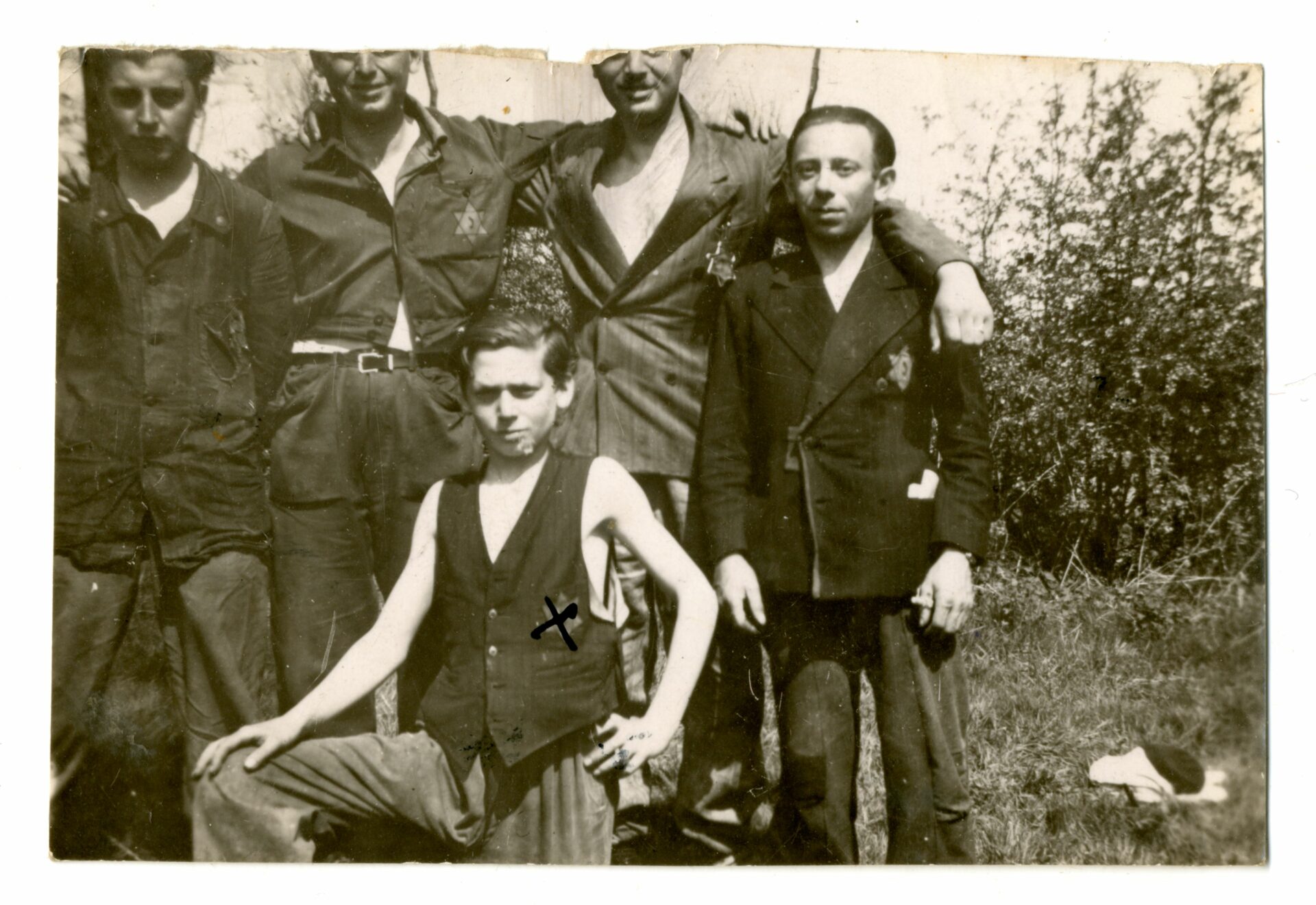Context
In summer 1942, workers were needed to construct the Atlantic Wall in Northern France. Gruppe VII of the German military command in Belgium, managing employment matters, ordered the Belgian Rijksarbeidsambt (National Work Bureau) to find these labourers. The bureau’s local offices used municipal Jewish registers and lists of unemployed Jews to claim Jews as forced labourers, which had been made possible by the anti-Jewish decrees of March 11 and May 8, 1942.
After a medical assessment, work orders were distributed. Six trains took the men from Antwerp to Northern France where they were housed under poor conditions in at least 14 different work camps. During ten-to-fourteen-hour-workdays they constructed roads, electrical and communication lines, fortifications, etc. The treatment implemented by the guards was cruel, and hunger and disease spread quickly, leading to numerous deaths among the workers.

A group of prisoners at the Les Mazures labour camp, 1942
Kazerne Dossin – Erlich-Liebermann Foundation
The exchange of letters and postcards with their families as well as, in some cases, the payment of a small wage to the relatives in Belgium created a false sense of security, leading to the workers not fleeing the work camps and their families remaining at their legal address in Antwerp, with disastrous consequences.
Statistical analysis shows that the deportation rate for the Organisation Todt workers from Antwerp was 84,82% whereas 73,52% for their relatives, in comparison to 56,03% for the complete Jewish population in Antwerp and 45% to 50% for the whole of Belgium.
